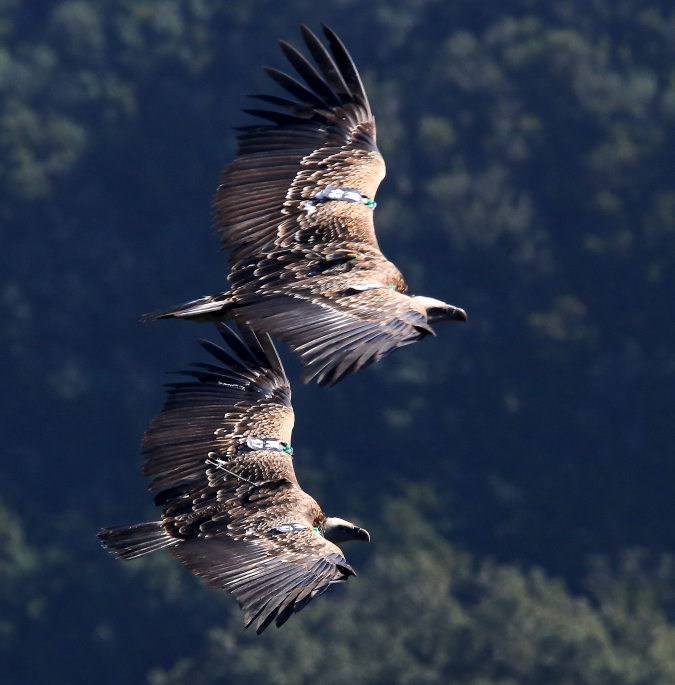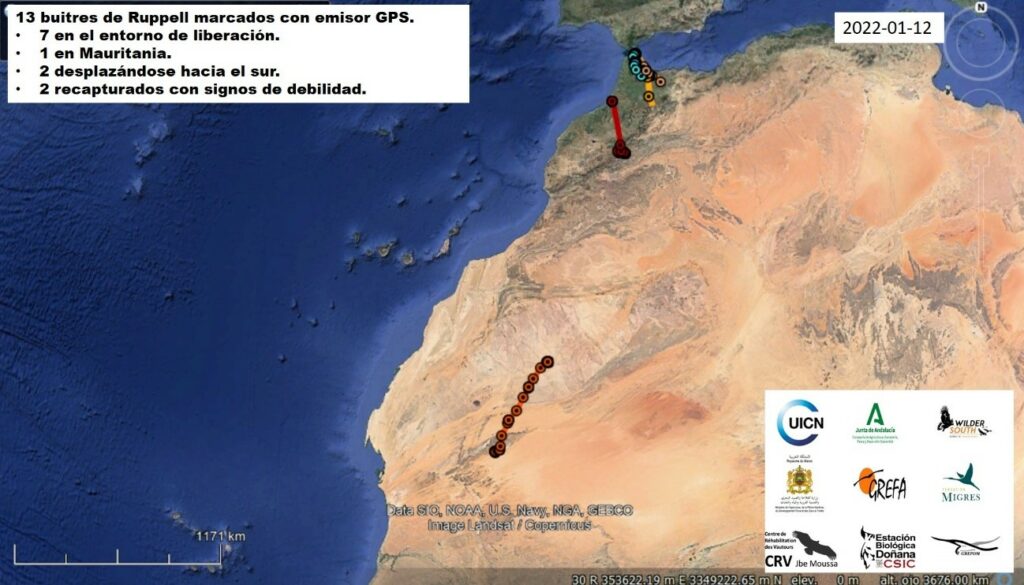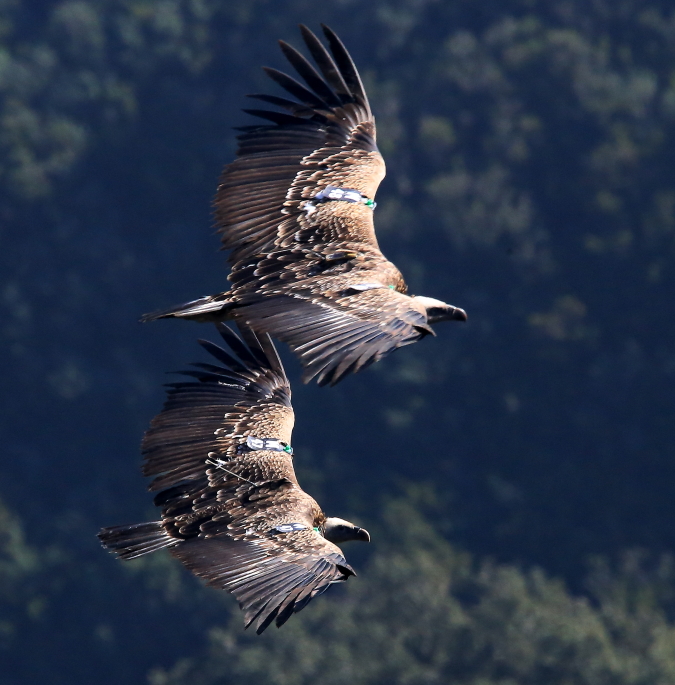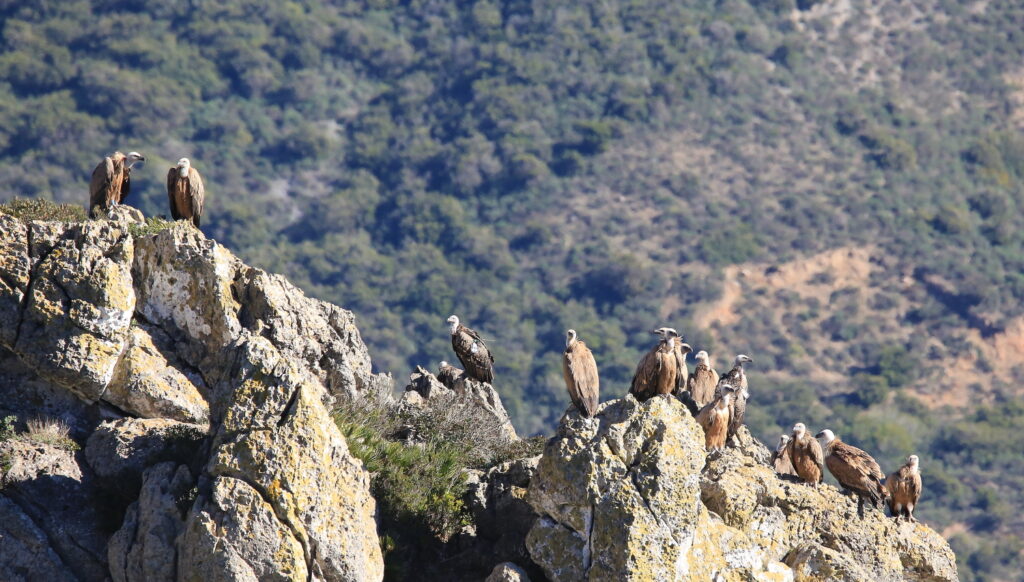Treize Vautours de Rüppell équipés par balises GPS et relâcher à Jbel Moussa (12 oiseaux en novembre 2021, et un plus tard en utilisant un GPS tombé de l’un des autres oiseaux). Après deux mois de suivi, sept vautours sont toujours dans la zone de lâcher attacher au charnier à vautours du CRV-Jbel Moussa, un se nourrit dans la décharge de Tétouan, deux sont en migration vers le sud et un est déjà en Mauritanie. Deux ont été recapturé avec des signes de faiblesse (et sont actuellemnt en réhabilitation à Jbel Moussa et à Rabat respectivement).

Two GPS-tagged Rüppell’s Vultures flying around Jbel Moussa, northern Morocco.
Below are the updates about the Rüppell’s Vultures fitted with GPS transmitters within an international collaboration project at the Jbel Moussa Vulture Rehabilitation Centre (CRV- Jbel Moussa).
After two months in the wild, seven of the vultures are near the release site at Jbel Moussa: six are still transmitting data (M53, M51, M47, M59, M55 and M50), while the seven has lost its GPS transmitter (but the bird still in the area). The transmitter used for this bird was recovered and reused with another Rüppell’s Vulture.
M57 has settled near the landfill of Tétouan. Vultures M48, M46 and M51 moved southward in recent days, but the latter (M51) returned back to Jbel Moussa despite travelling more than 100 km. M52, the only vulture that has dared to venture into the desert so far, is wandering around Mauritania.
Unfortunately, two tagged vultures, M54 and M58, showed signs of weakness and were recaptured in northern Morocco and the Atlas Mountains respectively. Currently, M54 is recovering at the CRV-Jbel Moussa and M58 at the Raptor Recovery Centre managed by our colleagues AMPR near Rabat. M54’s transmitter has been used to equip M49, a new Rüppell’s vulture joining the project.
In summary, of the thirteen tagged Rüppell’s vultures, seven are in the release area linked to the supplementary feeding station for scavenger birds at CRV-Jbel Moussa, one is feeding at the Tetouan landfill, two are moving south, one is already in Mauritania and two have been recaptured with signs of weakness.

The project is carried out jointly by the Department of Water and Forests (of Morocco), Junta de Andalucía, GREPOM/Birdlife Morocco, the IUCN Centre for Mediterranean Cooperation, Migres Foundation, the EBD, and the Spanish NGOs GREFA and Wilder South.
The recovery of M58 would not have been possible without the collaboration of Pr Imad Cherkaoui of Nature Solutions, the locals of the village of Tilouguite, the forestry agents of that area and the regional directorate of Water and Forests of Beni Mellal-Khenifra (DREF-Beni Mellal).


